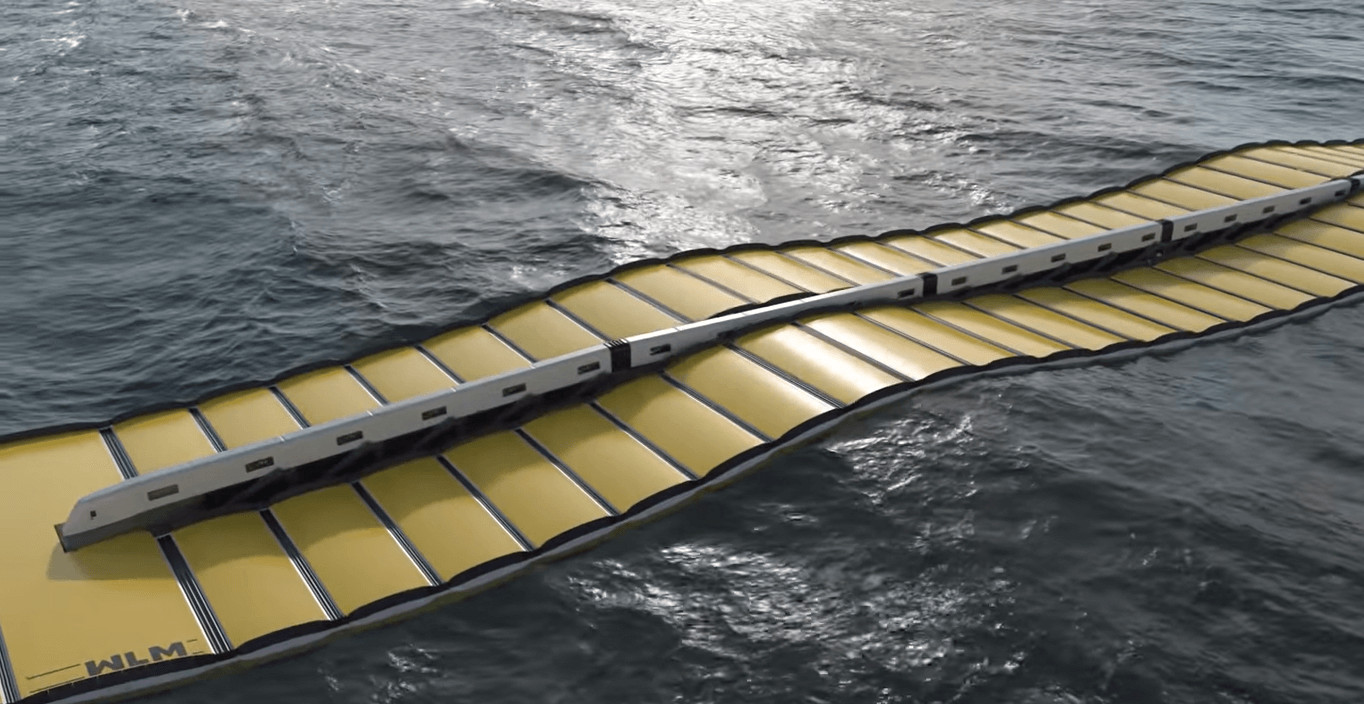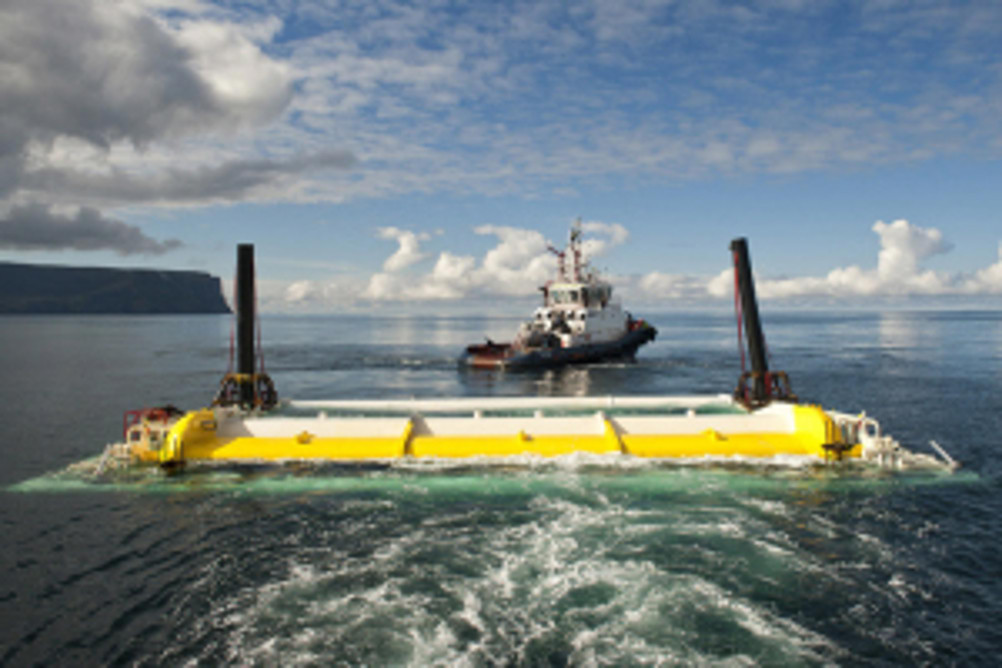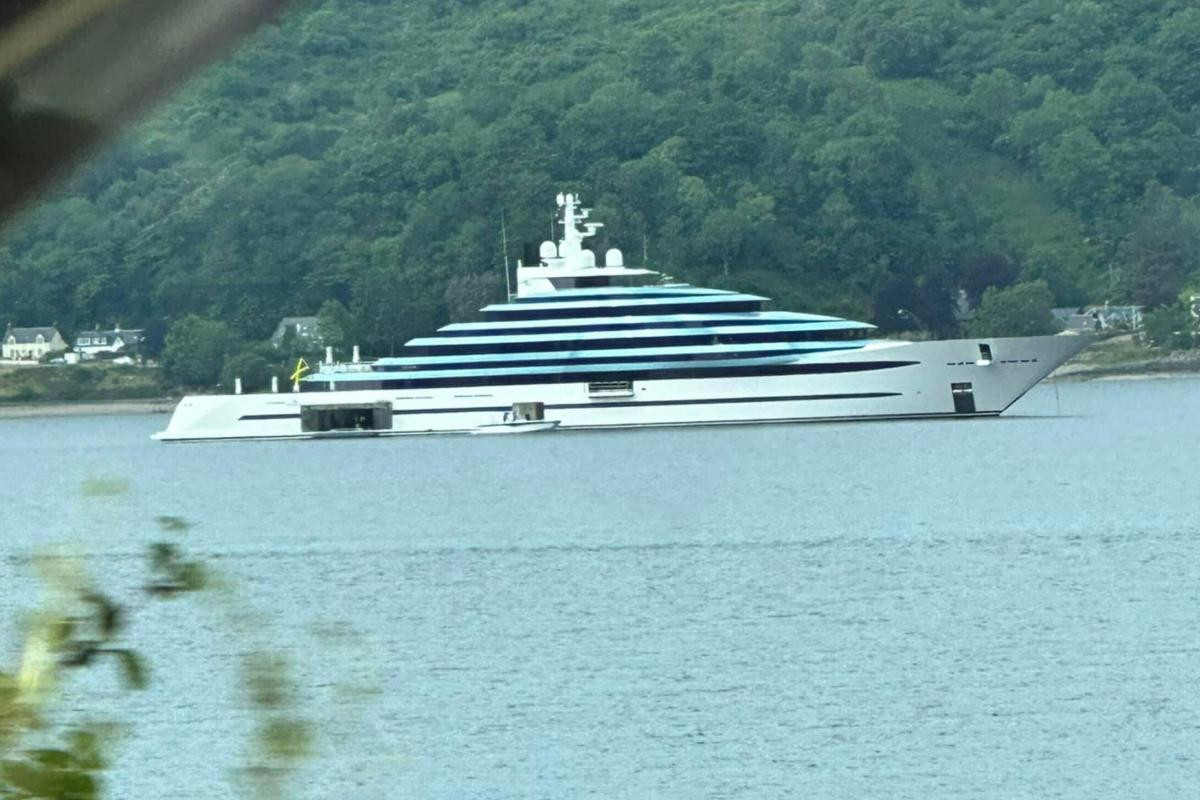The world’s largest wave-energy converter device, built through a collaborative effort, is set to begin trials off the coast of Orkney, Scotland, after receiving a nod from the European Union. Called Wave Energy Demonstration at Utility Scale to Enable Arrays (WEDUSEA), this 19.6 million euro (US$21.3 million) project is funded by the EU and consists of partners from industry and academia in France, Ireland, Germany, Spain, and the UK.
Wave energy converters (WEC) are the next frontier of clean energy technology. They can tap into the vast energy reserves in sea waves without producing planet-warming emissions. While offshore wind farm installations are occurring rapidly, they are still tough to execute.
In comparison, WECs offer a way to tap into another perennial energy resource through relatively easier-to-execute projects. Interesting Engineering has previously reported on various WEC designs being trialed in various parts of the globe. However, their output capacities were only a few hundred kilowatts.
The WEC set for trials under the WEDUSEA project boasts an output capacity of 1 MW, the world’s largest among wave energy converters.
WEDUSEA will use OE35, a WEC developed by the Irish company Offshore Energy, which can also be connected to the grid. The WEC is a floating device whose lower part is open to the sea and has trapped air volume on the top.
When a wave arrives, the water on the lower end of the WEC oscillates, driving the trapped air through a turbine, which generates electricity.
As part of the WEDUSEA project, the WEC will be tested for two years at the European Marine Energy Centre (EMEC) wave energy test site at Billia Croo in Orkney, Scotland over two years to demonstrate its technical prowess as well as withstand the elements in the Atlantic waters.
The subsea cables at the EMEC will carry the electricity to the UK grid.
The WEDUSEA project consists of three phases. In the first phase, the WEC will be built according to the conditions at the EMEC test site. This will be followed by a two-year demonstration phase, which will then lead to the commercialization of the technology using data from the tests.
Estimates suggest that the annual production potential of wave energy is 30 TWh, about ten times Europe’s electricity consumption. The technology to realize this potential needs to be rapidly developed.
Before giving its nod, a team of independent experts reviewed the technical and financial aspects of the WEDUSEA project. The WEC construction is expected to begin later this year, and the demonstration phase is scheduled to begin by June 2025.
“The project will demonstrate that wave technology is on a cost reduction trajectory and will thus be a stepping stone to larger commercial array scale up and further industrialization,” Tony Lewis, Chief Technical Officer at Ocean Energy, in a statement. “We predict that the natural energy of the world’s oceans will one day supply much of the grid.”
The Rise of Wave Energy
The WEDUSEA project is a significant step towards unlocking the vast potential of wave energy, a renewable source that has the potential to provide a significant share of the world’s electricity needs. The project builds on the growing momentum in the wave energy sector, with several other projects currently in development around the world. For instance, The Ondas de Peniche (ONDEP) project has secured €19 million in funding from the EU’s Horizon Europe funding program to deploy a 2 MW wave energy array with four WaveRoller wave energy converters offshore Portugal.
Located in Peniche, Portugal, the pilot wave farm will be installed, connected to the grid, and will generate electricity for eight years after the project’s conclusion, said Ocean Energy Europe (OEE).
“This project builds on two decades of hard work developing WaveRoller into a commercial asset. We’re excited to work on this collaboration together with the other partners to create a new industry in Europe,” said Christoper Ridgewell, CEO of AW-Energy, the technology provider for ONDEP.
ONDEP said it will focus over the next five and a half years on addressing the technical challenges for future large-scale wave farms, ensuring reliability and scalability. The project aims to build a comprehensive end-to-end European supply chain to support the deployment of GW-scale wave energy across Europe and beyond.
“Wave energy is the largest untapped renewable energy resource in the world. The ONDEP project is poised to be among the first pilot wave farms globally, advancing this new industry to an industrial level. It will pave the way towards a zero-carbon future,” added Rémi Gruet, CEO of OEE.
Led by Queen’s University Belfast, ONDEP involves 14 partners from Belgium, Finland, France, Italy, Netherlands, Norway, Portugal, Spain, and the UK, covering the entire wave energy value chain.
“Queen’s University Belfast is a centre of excellence for renewable energy, coastal engineering and wave energy technology. As well as coordination we’re looking forward to valuable research that we’re confident will benefit the entire industry,” said Pal Schmitt, Lecturer at the School of Natural and Built Environment.
By 2030, ONDEP aims to establish 11 wave energy farms in eight countries across four continents, totaling 83 MW of capacity. By 2035, the goal is to achieve a levelized cost of energy (LCOE) of less than €100/MWh, contributing to a sustainable blue economy and potentially creating up to 500,000 jobs in Europe, said OEE.
The Future of Wave Energy
The WEDUSEA and ONDEP projects are just two examples of the growing number of initiatives aimed at harnessing the power of waves to generate electricity. These projects are paving the way for a future where wave energy plays a significant role in meeting the world’s energy needs. With the ongoing advancements in technology and the growing awareness of the need for clean energy, wave energy is poised to become a major player in the global energy landscape.
As the technology matures and costs continue to decline, wave energy is expected to become increasingly competitive with other renewable energy sources. The potential for wave energy is enormous, and the projects like WEDUSEA and ONDEP are demonstrating that it is a viable and sustainable option for a clean energy future.
The future of wave energy looks bright, and the next few years are likely to see significant progress in the development and deployment of this exciting technology. As the world seeks to transition to a clean energy future, wave energy is poised to play a crucial role. It is expected to contribute substantially to the global energy mix in the years to come.


















